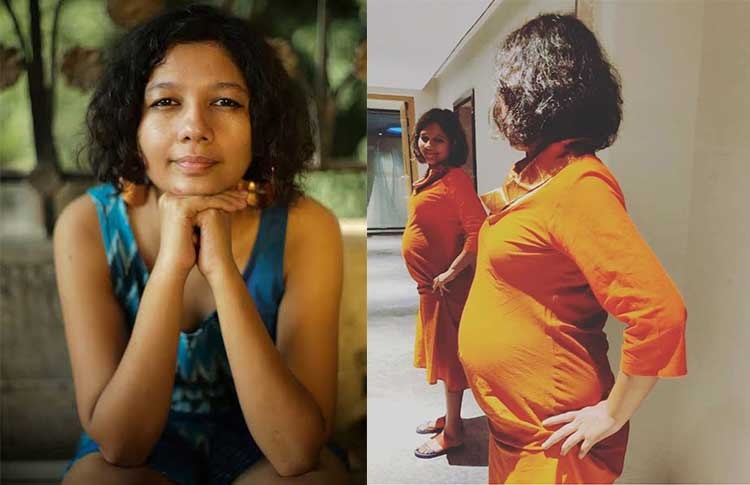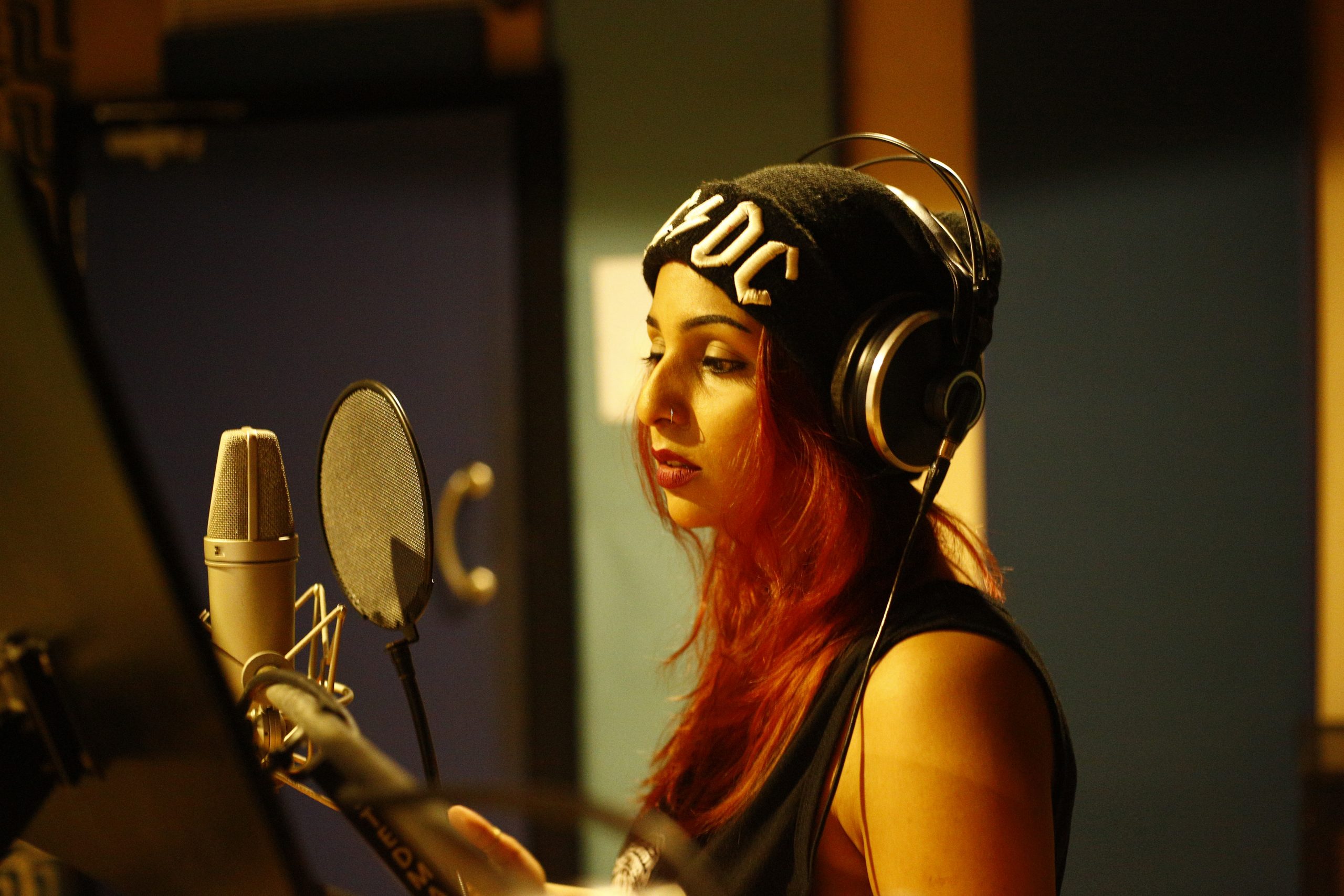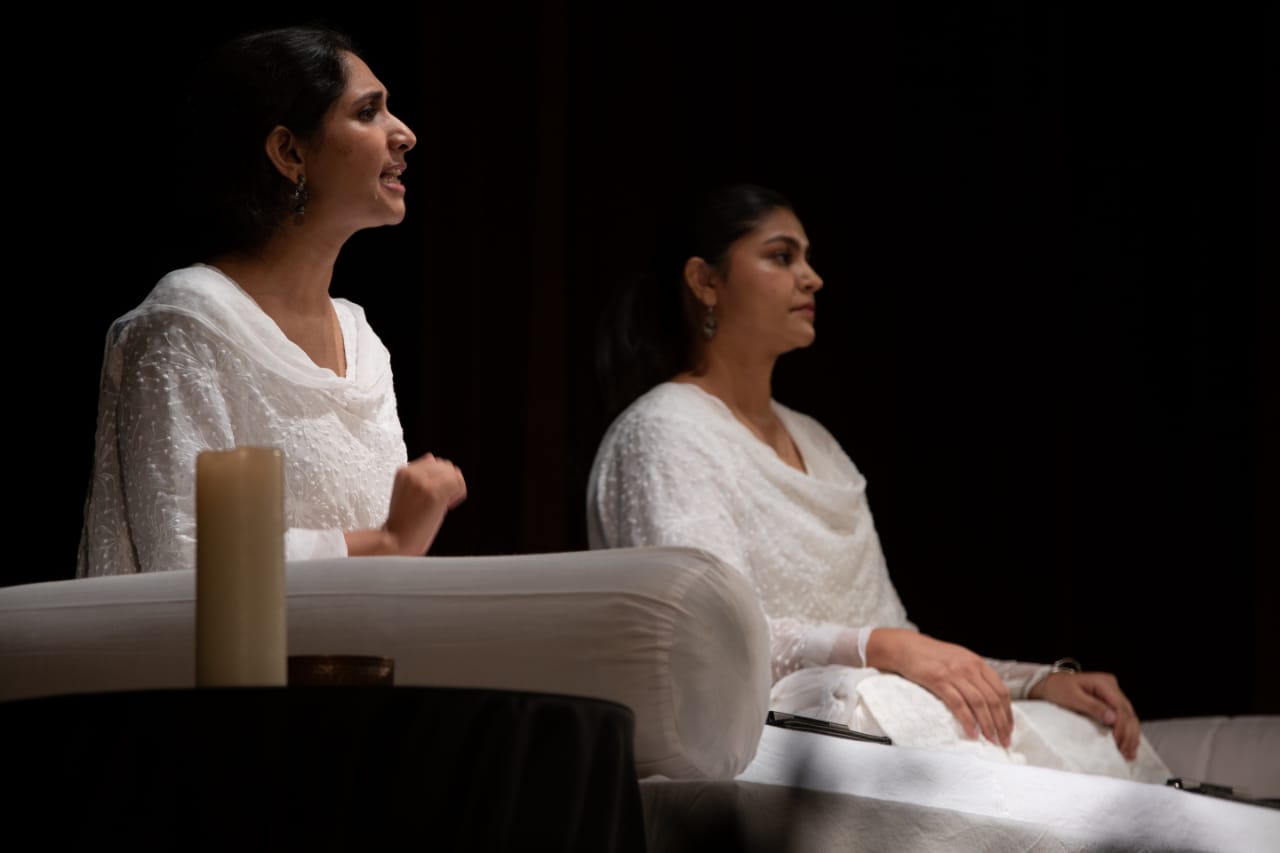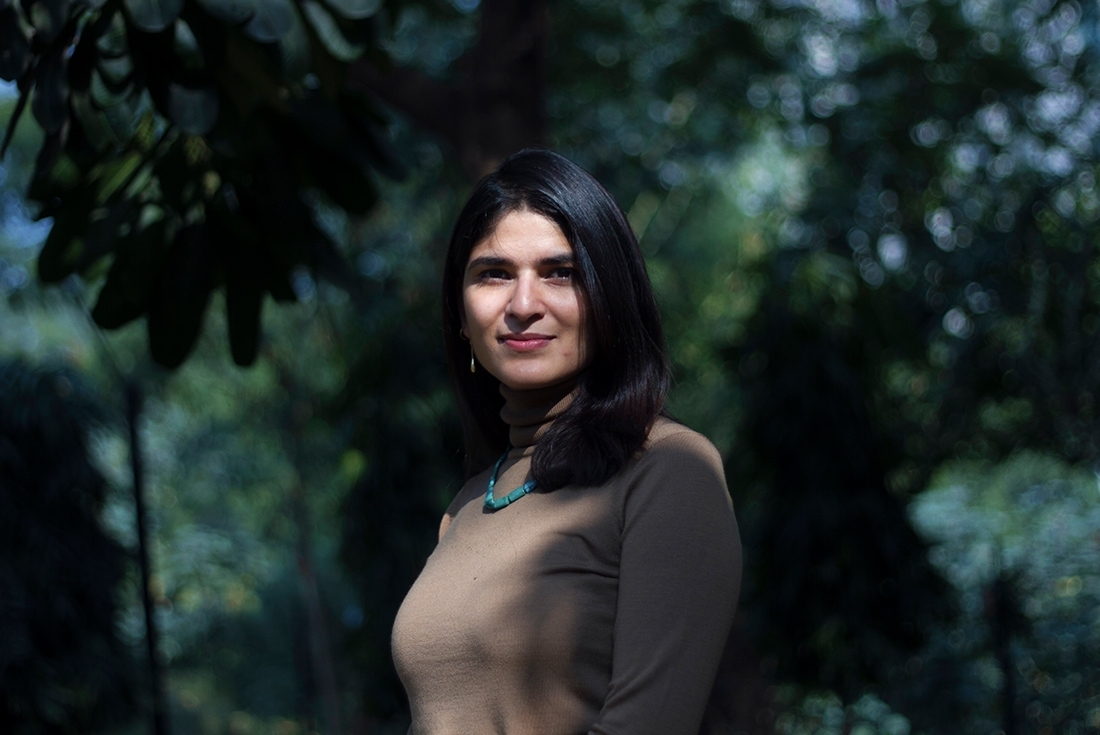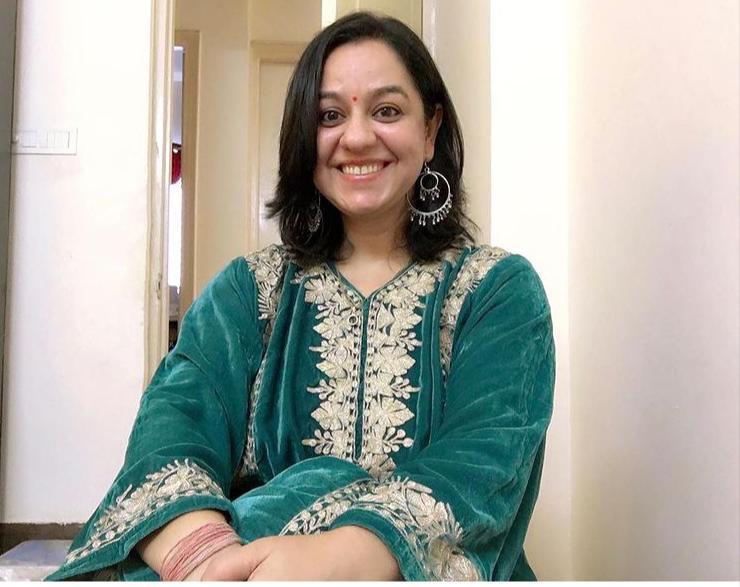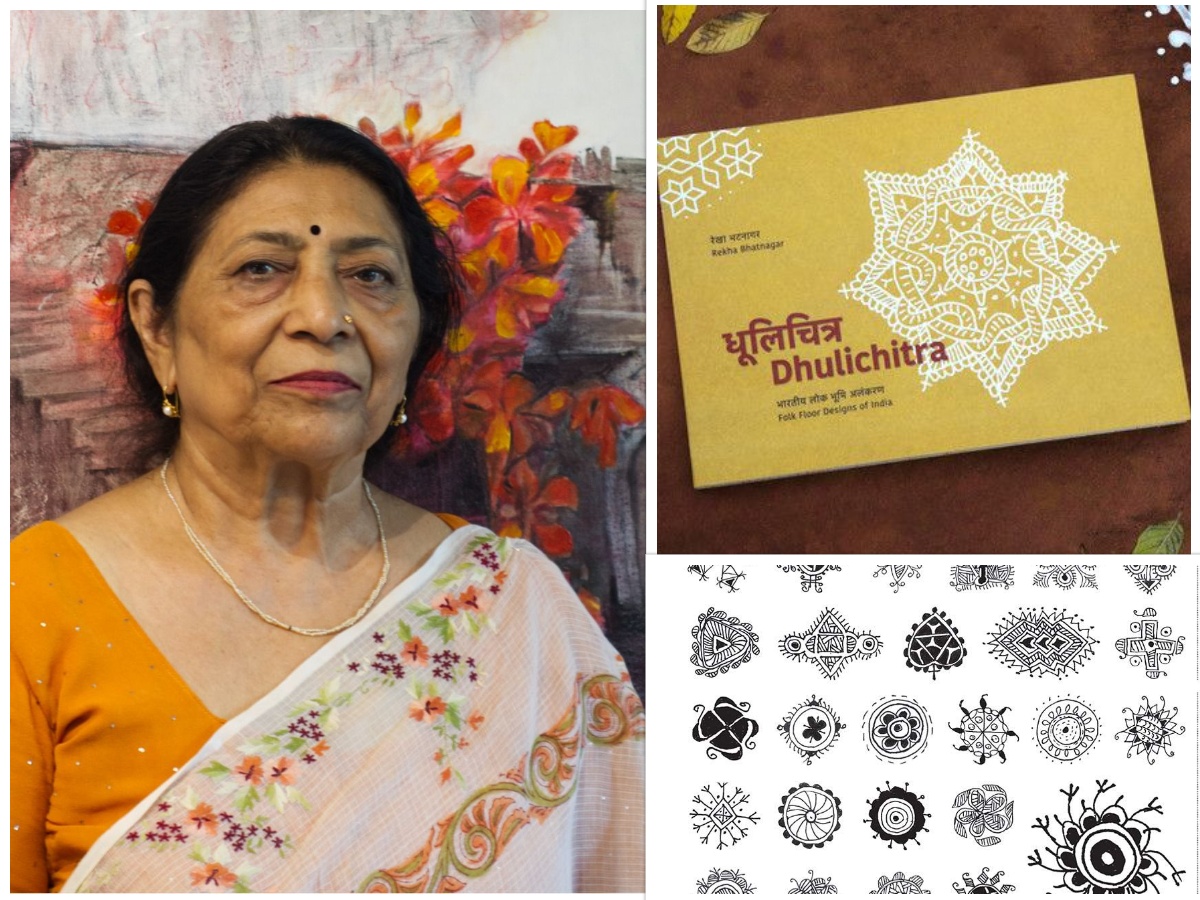India’s First Female Rap Duo Speaks Up For Truth That Some Choose To Ignore
- IWB Post
- January 8, 2021
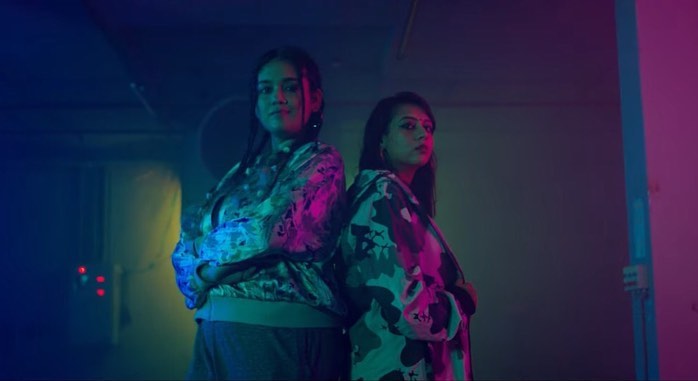
Music is a powerful medium, and its strength lies in both the words and rhythm. History has been lucky to witness legends who have sought to bring change and find their voice through music. And though there are many genres, each serving its own purpose in the larger scheme of things, rap and hip hop score high when it comes to internalizing as well as addressing the larger pressing issues.
Though the interest in rap and hip hop increased multifold after Gully Boy created a rage, the story of women in hip hop hasn’t really found or reached its deserving peak. Yet, two women who were coursing along their individual musical journeys managed to find each other to create India’s first female rap duo. They are none other than Emcees Pratika and Krantinaari who along with producer PrabhuNeigh form the Won Tribe.
Pratika started playing the bass guitar when she was 12 years old and by 13 she was in a metal band. Being primarily a metal head her connection with hip hop was that it had “a lot of standing up for the right things and talking about the different problems in society, social, political, economic, personal, mental health issues, etc. All these things were very strongly seen in some hip hop artists which is what I related to and that is mostly the themes of a lot of metal and rock music as well,” says Pratika. Krantinaari aka Ashwini Hiremath, on the other hand, is a graphic designer and would listen to all the different genres of music but come back to hip hop again and again.
Both Pratika and Ashwini had their individual releases, however, they met quite randomly at a gig organized by a friend and started talking quite casually. But as Pratika says, “whenever we used to sit and discuss something it would be something woke and that’s when we thought that there was a way of doing this together. There are no two women collaborating and it has to start somewhere. That’s where Won Tribe and what all we do really started. It’s a mixed collaboration where Ashwini is more of the conscious writer creating meaningful words. I am more on the musical side thinking of how something should sound. So that balance is good.”
And oh boy it is! One of their most popular releases together Labels is a hard-hitting culmination of piercing words that hits the bull’s eye speaking on issues and concerns that really matter. Listening to Labels, its hardcore, raw, and cutting lyrics, you sway and are engulfed in its tempo. There is energy, there is genuine anger against injustice, and a strong messaging that is gripped in attitude and fervor. As Ashwini points out, “We are surrounded by all these issues since we were children but we never think about it or ask about it. Many of us discuss so much in our rooms, but no one wants to step out and start a change. So that was one reason for Labels, where we understood what was happening in our community and environment. Our lyrics start with taking references from the community level and then journeys towards global issues.”
Pratika adds, “Labels as a song was built around the idea of how in every micro and macro aspect of society there is some form of discrimination – whether it’s gender-based, caste-based, class. We were writing Labels when the George Floyd incident happened, Hathras case happened. Simple discrimination based on class, color are things we don’t need in the world today. We speak through our music and that is our way of protesting and raising our voice.”
The voices of these two young women ought to be heard for more than one reason. Each comes with a deep understanding of the world at large, of affairs that everyone is aware of but turns a blind eye to. As Ashwini says, “Our music is going to show you the dirt that is there in society. It aims to ignite the will to start cleansing and cleaning it. One day you will get up and say I need to clean it and my work is to show you that and clean it up with you.” From their shared musical passion to their unmatched zealous energy, Pratika and Ashwini talk about women in rap, the anger and angst that drives them and the honest will to sweep clean the ills of injustice and inequality.
Rapping has become suddenly prominent recently. What is it about rap that you think connects with people?
Pratika: Hip hop for me and Won Tribe is more about the aspect of standing up for things we have not had and the chance to speak out. In terms of the content, my main connection is, whether it’s rock or metal – very few genres actually take the effort of going deep into what is happening around us, to discuss things with our environment, society, and world order. And hip hop is the only genre that has so much diversity. There are various elements and there is much more to it than confined to the spoken language. Also in hip hop, the music is very listenable, it’s easy on the ears in terms of the production and the way the tracts are made.
Ashwini: I think using your sentences as a musical element is something that is unique about the genre. The words are the music, there is a beat going on behind but the words are also what people are going to groove to. And, each word placed – though is technically crafted to sound better, at the same time pierce through your thoughts and that is the strength of this medium. Also, there is a compilation of so many other genres like reggae, jazz, blues, it’s like it has the best of all worlds.
I personally find that there is something really personal and a lot of anger that exhibits itself in raps that are rebellious to authority. Share with us your personal anger and rebellion you manifest through rapping?
Ashwini: My anger is not hateful but it is about why certain things are not the way they should be. Why aren’t people being able to live the way they want or the life they deserve? They can’t just because they are from a certain stratum and this should not be the case. Small things like this prick me up. Since childhood, even in school, we were conditioned to believe a few good qualities like keeping a clean city, or all Gods are one, etc. We are taught everything but where does learning go and why does it all change when we grow? We become arrogant and bad with each other, and that makes me angry.
Pratika: For me, my emotions also come from a disturbing childhood. Basically, I used to stay in a neighborhood in Bandra which was like a semi-ghetto and there was so much happening there that it was always a little overwhelming for a child. All different kinds of problems kept coming up and the only music that I actually related to was by other rappers who made me feel that they were also going through the same things. However, the first time I heard a piece of heavy music I was scared. I was like what is this form of vocal, why are people screaming, growling? But it suddenly started growing on me and I realized that I should also probably write music. It helped me relate to myself. Also, the first time I heard metal was when I was getting bullied in school for no reason. And even today I see so many kids going through it. But we can help a lot of people and send out messages that otherwise don’t reach the headlines of the newspapers, just through music and songs. And that is the whole aim of my life and anything that we do as Won Tribe, too.
Are rappers in India often the voice of dissent?
Ashwini: Every artist, if you notice their first song, they start off by speaking about their community. However, especially after Gully Boy, everyone has started thinking of hip hop differently. The artists were on the streets speaking about what was happening in the community, expressing themselves, speaking about issues, but the minute the movie came out it glamorized the thought of hip hop. And I think the root of it started decaying because most of them started aiming for fame and all the glamour. Hip hop has the strength to pave through all the mediums but it does not talk about very generic emotions. It is intellectually deep and it touches an emotion beyond the surface, like happiness, sadness, etc. Hip hop goes beyond these, and I think the essence of it has been diluted in the recent past.
Pratika: I agree but would like to add that when the movie came it was an explosion for the genre of music. The positive is that it has given a lot of people hope to just speak. It has in a way ignited this fire for so many kids who are just rapping because they have heard Divine and they have the courage to be something from such a young age. However, for us personally, hip hop has had that personal connection where we are talking about our problems, so for us, it’s always going to be that way.
What is the cost of telling the truth today for an artist?
Pratika: Of course, there is a cost. There is always someone who is trying to suppress the truth and there will always be people in power who will try to do something to safeguard their benefit and suppress anything that gives you a whip of something wrong. If a rapper or artist has decided that they are only going to speak the truth they will do it no matter what comes their way. The repercussions are inevitable. While all of us try to see ways and write in ways that are not directly hitting but in certain cases where there are practical examples and we will talk about them because that is what rap is about. It is about speaking the truth just a little fast and in rhythm. That will be dangerous but if in their hearts they know they want to speak the truth, they will anyway – and it doesn’t matter if that gets them in trouble or they are the only voice of dissent. A rapper or any musician for that matter, who makes up their mind to speak the truth, will do no matter what. And, I respect that! In fact, I want to be that musician who can be as vocal about things that really affect me and this applies to Won Tribe.
Ashwini: Yes, give us any medium or source, we are going to make it so conscious that there is no other way to look at it. If there is some power that is trying to suppress us then we take that suppression as a medium and turn it back on them and fight back. For example, if there is a protest and we are in it, then we use the sounds of the protest.
Women in rapping are rare. Why do you think it is still so? Why does patriarchy is so afraid of women armed with a rap verse?
Ashwini: I think people are not able to discover women. There are so many women in UP who are putting up videos from their villages but no one is recognizing or seeing them. Go anywhere and you will find a girl creating her own revolution. Hip hop has spread not only among boys but girls, too. It’s just that we haven’t yet recognized them or their form of rapping may not be like us since they are too, unique. However, the strength of the two can be definitely better than the strength of one. More women need to work together. That’s the myth that Pratika and I want to break! Two women can make the best team. People say women can’t work together but that’s not true. Pratika and I work very smoothly. In fact, we feel safe with each other and we are not scared.
Pratika: It’s very difficult in any industry to be a woman and even in music, women are sparse. Honestly, I really can’t put my finger on it but I think there needs to be a more deep-rooted unity in the way even other rappers of other genders see female rappers. At the root level, there is no engagement or appreciation. The problem is if in a group someone appreciates a female rapper, there will always be someone else who says it’s not a big deal because there are only three-four female rappers and so there is no competition. But there has to be equal respect and dignity. Again as artists, there are some gender-based things that are covered because of which people stay away from it. For example, guys talk a lot about dicks, but when a woman talks about the vagina the whole world can’t take it. Why can’t you take it? Why does it come as a shock when the woman says something? Also, our country is just generally and inherently suppressive to women. Even if we don’t intend to, we just know it’s a certain way of society, whether it is about women getting an education or becoming a rapper and going for shows, coming late nights, etc.
Do you think you bring a different sensibility to your music being women?
Ashwini: The perspective is totally different because the world has always been seen from the man’s point of view. The world is always talking about men and their issues but no one ever gave importance to what a woman thinks.
Pratika: The problem of patriarchy is that it has forced people even within the same gender to feel horrible about themselves. You always hear boys don’t cry, etc. and they are not realizing how it is affecting people. We don’t talk about half of these issues because we are so ridden in our problems that it’s very difficult to see beyond and that creates many barriers within the same gender, too. It’s all a huge mess because of what is allowed to exist and we just want to be the voice that shuns these biases.
What advice would you like to give young musicians and particularly rappers?
Ashwini: My mantra is to create without fear. I have faced difficulties where I have thought about what people might think. I go through it as well, but keeping at it is something I would suggest. I would also like to add that when you are starting out as new artists give yourself and your art time before posting your creativity on social media. So that when you do come on social media, you use the platform to shine.
Pratika: Keep at it, speak through your heart, and speak the truth. I don’t know anyone who has done it by magic, it takes a lot of consistency that helps you overall improve and move forward.
- 0
- 0





